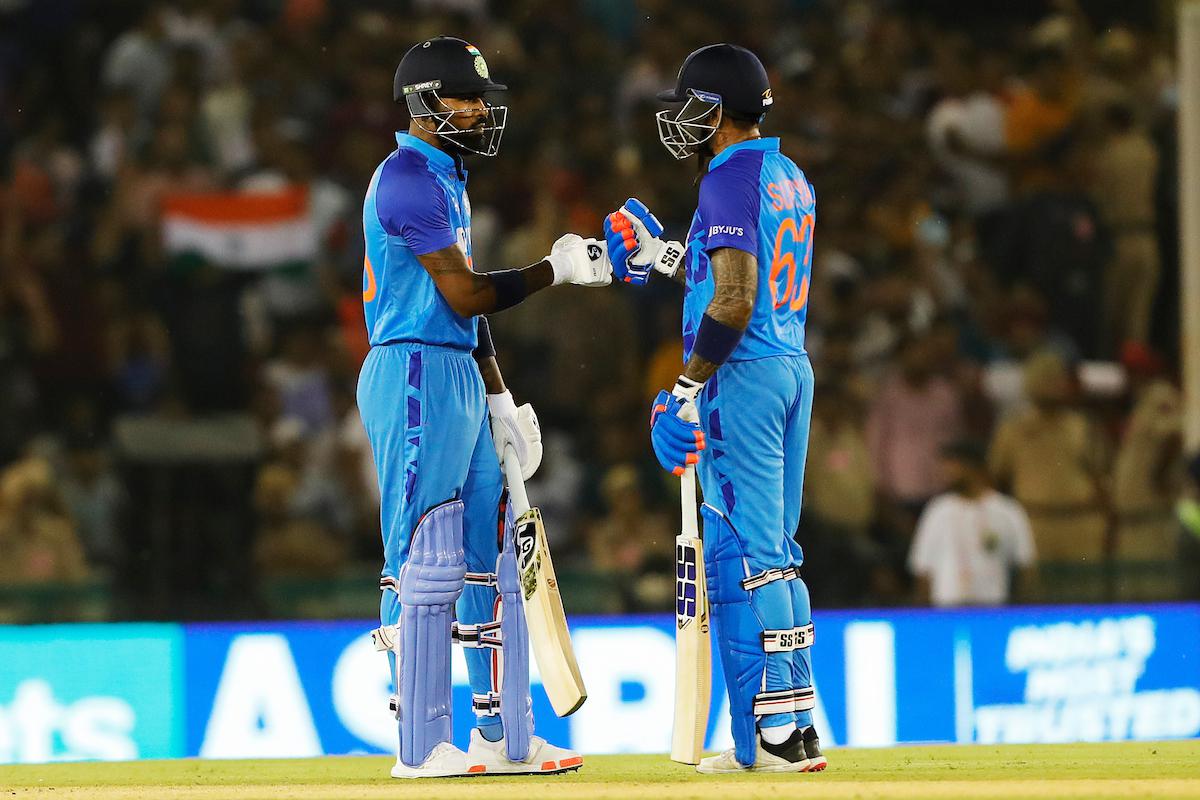Why Suryakumar Yadav Was Chosen Over Hardik Pandya as The T20I Captain?

The Men’s Selection Committee recently announced the Indian cricket squads for the much-anticipated tour of Sri Lanka in 2024. This announcement stirred considerable interest and discussion among cricket enthusiasts and analysts, particularly regarding the decision to appoint Suryakumar Yadav as the captain of the T20I team, bypassing Hardik Pandya. This move raised several questions and speculations. This article delves into the reasons behind this significant decision and explores the various factors that contributed to Suryakumar Yadav’s selection over Hardik Pandya as the T20I captain.
Leadership Transition in Indian Cricket
Indian cricket has seen numerous leadership transitions over the years, each bringing its unique set of challenges and opportunities. The transition from Virat Kohli to Rohit Sharma as the captain was one such significant change. With Rohit Sharma stepping down from T20I captaincy, the selection committee was tasked with choosing a new leader who could uphold the team’s standards and lead them to new heights.
Hardik Pandya, having served as vice-captain during the T20 World Cup 2024, seemed a natural successor. However, the committee chose Suryakumar Yadav, a decision that reflects deeper considerations beyond mere seniority or previous leadership roles.
Suryakumar Yadav: A Promising Leader
Suryakumar Yadav, affectionately known as SKY, has been a prominent figure in Indian cricket for several years. His consistent performance, both domestically and internationally, has earned him a reputation as a reliable and explosive batsman. However, it’s not just his batting prowess that caught the selectors’ eyes. Yadav’s leadership qualities, strategic acumen, and ability to inspire and manage his teammates have significantly influenced this decision.
One notable instance highlighting Yadav’s leadership was during a T20 series in South Africa, where he captained the team. His ability to handle pressure, make strategic decisions, and maintain team morale was evident. When Ishan Kishan expressed his desire to leave mid-series, Yadav persuaded him to stay, demonstrating his persuasive skills and deep understanding of team dynamics. This incident showcased Yadav’s ability to manage players effectively and maintain a cohesive unit, qualities essential for a successful captain.
Player Trust and Comfort
The Indian Express reported that player trust and comfort played a crucial role in the selection of Suryakumar Yadav as the T20I captain. According to feedback received by the BCCI, players felt more at ease working under Yadav’s leadership. This trust is paramount in any team sport, where the captain’s ability to maintain harmony and motivate players can significantly impact performance.
Hardik Pandya, despite his impressive skills and contributions to the team, did not garner the same level of trust from his teammates. This lack of trust could stem from various factors, including his on-field demeanor, personal challenges, or leadership style. The selection committee recognized that a captain who enjoys the players’ trust is more likely to lead the team successfully, thus opting for Yadav.
Management Skills and Communication Style
Effective communication is a cornerstone of successful leadership. Suryakumar Yadav’s communication style has been compared to that of Rohit Sharma, known for his calm and approachable demeanor. This similarity makes it easier for players to have open discussions with Yadav, fostering a transparent and collaborative environment.
Yadav’s management skills were also highlighted by the Indian Express report. His ability to handle different personalities within the team, manage conflicts, and maintain discipline were key factors in his selection. The incident with Ishan Kishan is a testament to Yadav’s capability to manage players’ emotions and keep the team focused on their goals.
Hardik Pandya’s Personal Challenges
Another factor influencing the decision was Hardik Pandya’s personal life. On July 18, 2024, Pandya confirmed his divorce rumors with his wife, Natasa Stankovic. Personal challenges can significantly impact a player’s mental state and focus, and the selection committee might have considered this while making their decision.
Leadership in cricket requires not only strategic acumen and cricketing skills but also mental fortitude and stability. The selectors might have felt that Pandya, amidst personal upheavals, might find it challenging to focus entirely on his leadership responsibilities. By choosing Yadav, the committee ensured that the captaincy role was entrusted to someone who could fully dedicate himself to the task at hand.
The Bigger Picture: Long-Term Vision
The selection of Suryakumar Yadav over Hardik Pandya also aligns with the long-term vision for Indian cricket. The committee’s decision reflects a strategic approach aimed at building a team that can perform consistently and achieve success in the future.
Yadav’s leadership is seen as a step towards nurturing a new generation of players who can take Indian cricket to greater heights. His experience, calm demeanor, and ability to inspire confidence in his teammates make him an ideal candidate for this role. The selectors are looking at the bigger picture, ensuring that the team is led by someone who can develop and mentor young talents, creating a robust pipeline of future leaders.
Statistical and Analytical Insights
While leadership qualities and personal attributes played a significant role in the selection, statistical and analytical insights cannot be overlooked. Suryakumar Yadav’s performance in T20 cricket has been exceptional. His ability to score runs consistently, his versatility in batting positions, and his knack for handling pressure situations make him a valuable asset.
Yadav’s statistics in the T20 format highlight his consistency and match-winning capabilities. His strike rate, average, and ability to perform in crucial matches are factors that the selection committee would have considered. Hardik Pandya, though an excellent player, does not match Yadav’s consistency in the shortest format of the game.
The Road Ahead
As India prepares for the tour of Sri Lanka, the focus will undoubtedly be on how Suryakumar Yadav leads the T20I team. This tour will be a litmus test for Yadav’s captaincy skills, providing insights into his strategic thinking, decision-making under pressure, and ability to inspire his team.
Yadav’s appointment as captain opens a new chapter in Indian cricket. His leadership will be closely watched, not just by fans and analysts, but also by future aspirants who look up to him as a role model. The upcoming series will provide a platform for Yadav to prove his mettle and justify the selectors’ faith in his leadership abilities.
Conclusion
The decision to appoint Suryakumar Yadav as the T20I captain over Hardik Pandya was influenced by multiple factors, including player trust, management skills, communication style, and personal challenges faced by Pandya. Yadav’s proven leadership qualities, statistical performance, and long-term vision for the team made him the ideal choice for this crucial role. Just as we know Why are Candidates Required to Choose their Test City Again for NEET PG 2024?
As India embarks on its tour of Sri Lanka, all eyes will be on Yadav and his ability to lead the team to victory. This decision marks a significant step in the evolution of Indian cricket, highlighting the importance of holistic leadership qualities in building a successful team. Suryakumar Yadav’s captaincy is not just a reflection of his cricketing skills, but also his ability to inspire, manage, and lead by example. The future of Indian cricket looks promising under his leadership, setting the stage for new achievements and milestones.




